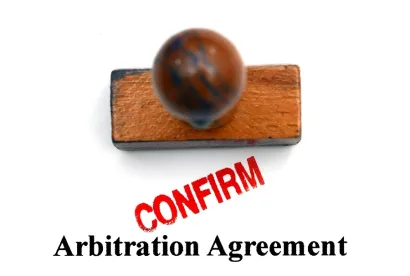On May 21, 2018, the Supreme Court of the United States ruled in Epic Systems Corp. v. Lewis that employers can require employees to arbitrate disputes with the employer individually and waive their right to pursue or participate in class or collective actions against their employer. Ruling 5-4 in favor of an employer’s right to include class action waivers in its arbitration agreements, the Court rejected the National Labor Relations Board’s position in D.R. Horton that such class waivers violate employees’ rights to take collective steps for their “mutual aid and protection.” The decision puts to rest the NLRA-based objection to such agreements, and so is a significant victory for employers, but leaves open other challenges to such agreements.
The Court’s opinion, authored by Justice Neil M. Gorsuch for the majority, resolved three cases that were argued together—Epic Systems Corp v. Lewis; Ernst & Young LLP v. Morris; and National Labor Relations Board v. Murphy Oil USA—in all of which an employee who had signed an arbitration agreement containing a class action waiver sought to litigate Fair Labor Standards Act and related state law claims through class or collective actions in federal court. The Seventh Circuit in Lewis and the Ninth Circuit in Morris had sided with the NLRB and the individual employees; the Fifth Circuit had rejected the NLRB’s view in Murphy Oil. Siding with the Fifth Circuit, the Court’s ruling requires employees who have signed arbitration agreements with their employers containing class action waivers to take their disputes to an arbitrator individually rather than as part of a putative class or collective action. Chief Justice John G. Roberts Jr. and Justices Anthony M. Kennedy, Clarence Thomas and Samuel A. Alito Jr. joined the majority opinion.
The employees had argued that the “saving clause” of the Federal Arbitration Act, which allows courts to refuse to enforce arbitration agreements “upon such grounds as exist at law or in equity for the revocation of any contract,” precludes enforcement of class waivers because the National Labor Relations Act (“NLRA”) protected their right to act collectively in bringing a class action. The employers countered that the Federal Arbitration Act protects agreements requiring arbitration from judicial interference and that neither the saving clause nor the NLRA demands a different conclusion.
The Court’s opinion repeatedly acknowledged that “[a]s a matter of policy these questions are surely debatable,” but held that “as a matter of law the answer is clear.” “In the Federal Arbitration Act,” the Court concluded, “Congress has instructed federal courts to enforce arbitration agreements according to their terms—including terms providing for individualized proceedings.” Nothing contained in the NLRA overrides that requirement, the Court held, and in particular, the NLRA “does not express approval or disapproval of arbitration” and “does not mention class or collective action procedures.” Indeed, the Court held that the NLRA “does not even hint at a wish to displace the Arbitration Act—let alone accomplish that much clearly and manifestly, as our precedents demand.”
That reference to precedent included the Court’s several arbitration decisions in the last ten years, particularly AT&T Mobility LLC v. Concepcion, 563 U.S. 333 (2011), which had upheld class action waivers against state-law challenges.
The Court’s decision should also abrogate some state-court decisions that had followed the NLRB’s analysis, such as the New York Appellate Division’s decision in Gold v. New York Life Ins. Co. (1st Dept. 2017). It may also preempt municipal prohibitions on class waivers, such as in the administrative rules promulgated under New York City’s Freelance Isn’t Free Act.
Notably, the Court’s opinion discussed Congress’ ability to pass new legislation to reach a different result. In fact, Justice Ruth Bader Ginsburg, reading her dissent from the bench, urged Congress to address the matter.
Even if Congress does not act, the Court’s rejection of the NLRA-based challenge does not mean that class action waivers will now be enforced uniformly. The Court acknowledged the FAA’s statutory exception, which permits arbitration agreements to be invalidated “upon such grounds as exist at law or in equity for the revocation of any contract.” The Court held that exception inapplicable here because it includes only defenses that apply to “any contract” (such as duress or fraud), and the NLRA’s arguable attack only on class action waivers does not offer a general defense to contract enforcement. But general state-law contract doctrines such as procedural and substantive unconscionability have played a greater and greater role in disputes over arbitration agreements, and the Court’s decision does not affect those debates.




 />i
/>i

